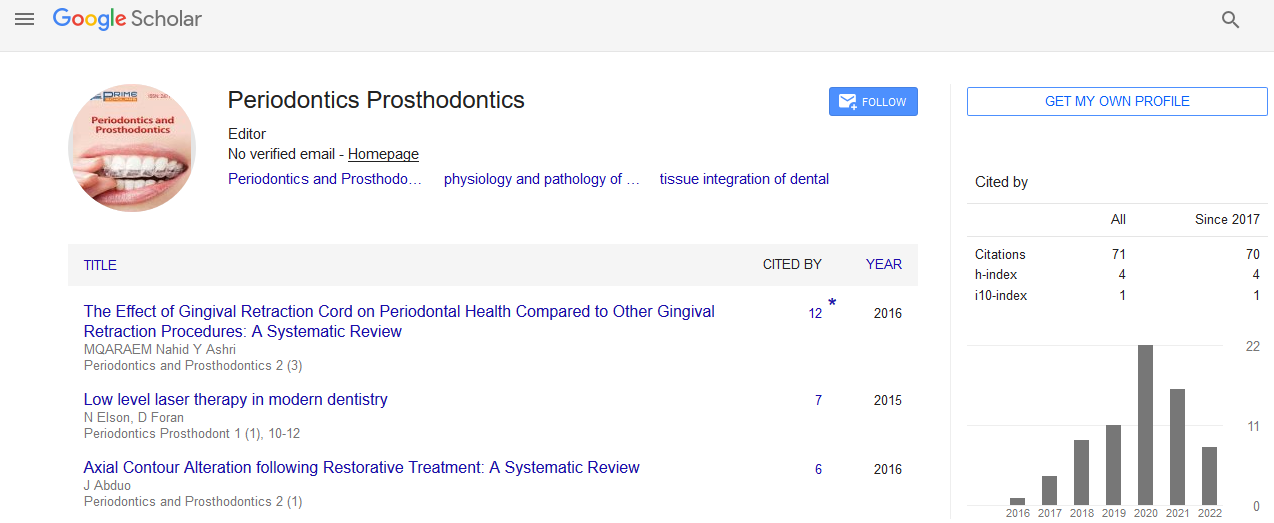Short Communication - (2023) Volume 9, Issue 3
Epidemiology: Unraveling the Threads of Disease
Gerhard Wahl*
Department of Oral Histopathology, University of Umea, Sweden
*Correspondence:
Gerhard Wahl,
Department of Oral Histopathology, University of Umea,
Sweden,
Email:
Received: 30-Aug-2023, Manuscript No. IPPDPD-23-18136;
Editor assigned: 01-Sep-2023, Pre QC No. IPPDPD-23-18136;
Reviewed: 15-Sep-2023, QC No. IPPDPD-23-18136;
Revised: 20-Sep-2023, Manuscript No. IPPDPD-23-18136;
Published:
27-Sep-2023, DOI: 10.36648/2471-3082.23.9.27
Introduction
Epidemiology is the scientific study of patterns, causes, and effects of diseases in populations. It is a cornerstone of public health, playing a crucial role in understanding, preventing, and managing health issues. This essay delves into the fascinating world of epidemiology, discussing its purpose, methods, and significance in modern society. Disease surveillance it monitors the occurrence and distribution of diseases in populations, enabling early detection of outbreaks and trends. This is particularly valuable in preventing the spread of infectious diseases. Understanding disease etiology epidemiology explores the causes of diseases, including genetic, environmental, and lifestyle factors. This knowledge forms the basis for effective prevention and intervention strategies. Assessment of health interventions it helps evaluate the impact of public health interventions and medical treatments, determining their effectiveness and safety. Health planning and policy epidemiological data guides health policymakers in allocating resources and making informed decisions to improve public health.
Description
Epidemiologists employ various methods to collect and analyze data this phase involves identifying patterns of disease occurrence and distribution. It answers questions like who is affected, where, and when this phase delves deeper into understanding the causes of diseases. It explores why and how diseases occur, often using case-control and cohort studies. These studies involve controlled experiments, such as randomized clinical trials, to assess the impact of interventions or treatments on disease outcomes. These surveys capture data at a single point in time, providing a snapshot of disease prevalence and risk factors. These studies collect data over an extended period, allowing for the examination of disease trends and changes in exposure. Understanding the causes of diseases helps design effective prevention strategies. For example, epidemiology played a significant role in combating diseases like smallpox and polio. It guides public health campaigns and policies to promote healthy behaviors
and lifestyles. Smoking cessation programs, vaccination campaigns, and nutrition guidelines all benefit from epidemiological insights. Policymakers use epidemiological data to allocate resources efficiently. For instance, during a flu outbreak, the knowledge of affected populations can aid in vaccine distribution. Epidemiologists play a critical role in identifying and responding to emerging health threats, such as pandemics, bioterrorism, and natural disasters. Epidemiology provides the foundation for evidence-based medical practice, ensuring that medical treatments are based on scientific data rather than anecdotal evidence. The accuracy and completeness of data are paramount in epidemiological studies. Inaccurate or missing data can lead to incorrect conclusions. Identifying the true cause of a disease can be complex, as multiple factors may be involved. Epidemiologists must account for confounding variables that could skew results. Conducting experiments on human subjects and collecting personal health data raise ethical concerns, which must be addressed in research. Adequate funding and resources are necessary for comprehensive epidemiological research. Inadequate resources can hinder data collection and analysis [1-4].
Conclusion
Epidemiology is a vital field of study that helps us make sense of the complex tapestry of disease. It plays a fundamental role in public health, from disease prevention and health promotion to evidence-based medicine. By unraveling the threads of disease, epidemiologists empower society to take informed actions to safeguard public health and improve overall well-being. The continued advancement of epidemiological methods and practices is essential in addressing the health challenges of the modern world.
Acknowledgement
None.
Conflict Of Interest
The authors declare that they have no conflict of interest.
References
- Beebe-Dimmer JL, Pfeifer JR, Engle JS (2005) The epidemiology of chronic venous insufficiency and varicose veins. Ann Epidemiol 15: 175-184.
[Crossref] [Google Scholar]
- Lurie F, Creton D, Eklof B, (2003) Prospective randomized study of endovenous radiofrequency obliteration (closure procedure) versus ligation and stripping in a selected patient population (EVOLVeS Study). J Vasc Surg 38: 207-214.
[Crossref] [Google Scholar]
- Dinc R (2023) ThermoBlockâ?? endovenous RFA effectively and safely treats great saphenous vein reflux. Surg Innov 30(3):408
[Crossref] [Google Scholar]
- Jia W, Liu J, Cheng Z (2022) Clinical efficacy of endovenous Radiofrequency Ablation (RFA) for superficial varicose veins of the lower extremities. Dis Markers 2022: 1673588.
[Crossref] [Google Scholar]
Citation: Wahl G (2023) Epidemiology: Unraveling the Threads of Disease. Periodon Prosthodon. 9:27
Copyright: © 2023 Wahl G. This is an open-access article distributed under the terms of the Creative Commons Attribution Li�cense, which permits unrestricted use, distribution, and reproduction in any medium, provided the original author and source
are credited

